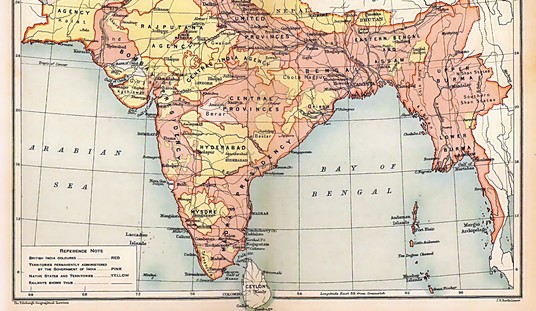The Associated Press reports that “Riot police cracked down anew on demonstrators in Iran’s capital on Monday hours after the feared Revolutionary Guard threatened to crush any further post-election protests. A witness described an ‘air of sadness’ marked by people wailing prayers into the night. Security forces used tear gas and fired live bullets in the air to break up a group of about 200 protesters paying tribute to a young woman whose apparent shooting death was captured on video and circulated around the world, witnesses said.”
The question of what America should do under the circumstances has divided policy analysts. Ivan Eland at the Independent Institute argues that Barack Obama has done the right thing by saying as little as he could. “Obama has been laudably trying to refrain from counterproductive slips of the tongue. Most important, he has said that it would be counterproductive “to be seen as meddling” in the contested Iranian presidential election. But he did say that he had “deep concerns about the election,” was deeply troubled by the post-election violence, and called on Iranian leaders to observe the democratic process.” At the other end of the opinion spectrum, Martin Kramer argues that Obama’s quiet cannot be explained by the urge to neutral. Obama has no qualms about taking explicit sides, when he wants to. Kramer says Obama is committed to a “Palestine first” approach. And if the “kiss of death” theory had any validity, then maybe it should logically apply to any initiative Obama cares to undertake. If American involvement is so fatal to a cause, then why should Obama endorse anything without the fear he will infect it? Cramer says:
Why is there a correlation between U.S. and Israeli endorsements of a “two-state solution” and the Palestinian stampede away from it, both Islamist and secular? Every time an American president or an Israeli prime minister declares that a two-state solution is a vital U.S. or Israeli interest, more Palestinians conclude it can’t possibly be in their interest.
Must the West remain silent on everything that takes place in the Middle East? Disqualified by its past? In an article dealing with the infatuation of some sections of the Western press with Hezbollah in Lebanon, Lee Smith argues that whatever the diplomats do, the Western intelligensia endorses positions and mass movements all the time. It just depends on which. How does one reconcile the fear of irking Iran by supporting the students with the openness to dealing with Hezbollah, a sworn subverter of the Lebanese state? The answer perhaps is choice. It is horrifying to think but worth considering that in some perverse way some people have made the intellectual choice to admire the bad guys. Smith makes the argument that liberalism isn’t really as popular as one might think with the intelligensia; that of late a perverse infatuation with fascism and a deeply illiberal attraction for the strong horse exists where we would least suspect it. He wonders whether the desire to deal with strongmen isn’t an implicit acceptance that they are the wave of the future. In other words perhaps the West has lost faith in democracy in the Third World just as people in these countries are discovering it. How did it happen?
Many of the veterans of the Western left are at pains to point out to their younger colleagues that their admiration for the Islamic Resistance is misplaced, that Hezbollah does not share their progressive values, their interest in, say, women’s rights or gay marriage. But it is the old-time leftists who are mistaken, for the rising generation that admires Hezbollah knows all that – and as I said, it is not about values. Indeed, to couch it in the terms appropriate to the matter at hand, there has been a trans-valuation of values. …
Democracy and liberalism had stripped the world of its primordial magic. Rather, the authentic life was to be found in the charisma of the great leader and his stark displays of power, the superman who transcended bourgeois values. It is said that Foucault was later disappointed by the Iranian Revolution, but make no mistake: He knew exactly what he was looking at in the orgiastic violence and the bright blood spilled in the streets of Tehran.
Thirty years after the Islamic Revolution and a quarter century after the death of Foucault, an entire generation of Western Europeans and Americans, the cream of our cultural elite, has been shaped by an intellectual current that despises liberalism and dismisses as mediocre the universal humanism that prizes the same values across cultures, from the US and Europe to the Middle East. Instead, it welcomes the return of the magic, the blood and power, the violence of the strongman. Why we never imagined that these ideas would affect how people interacted with the world around them and interpreted it is hard to explain. What is easy to explain is why Western journalists, academics, writers and artists are in love with the Islamic Resistance – it is not despite the violence, but because of it. So how would they like it if an armed gang ran through New York, London or Paris? In effect, it already has.
It would be ironic if the diplomatic establishment consents to talk to the commanders of the Hezbollah and the paymasters of the Basijis before it could nerve itself to talk to the Iranian students in the street. Maybe the reason that the guilt-stricken Western intelligensia has avoided bestowing the “kiss of death” upon the Iranian demonstrators is that it has already planted the kiss of Judas upon their crimson cheeks.
[youtube npdISZUtdmU]










Join the conversation as a VIP Member